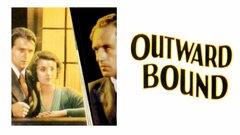Leslie Howard

Actor • Director • Producer
Birth Date: April 3, 1893
Death Date: June 1, 1943
Birth Place: Forest Hill, London, England, UK
Children: Ronald Howard
Debonair English actor Leslie Howard excelled at playing disillusioned intellectuals and gallant gentlemen on the stages and screens of Britain and America for nearly 30 years. Painfully shy as a child and traumatized on the battlefields of World War I, Howard turned to the theater as a form of therapy, and began appearing on the stages of London within a few short years.
By the 1920s, Howard had left for Broadway, where he achieved acclaim in a series of well-received productions over the following decade. He made his Hollywood debut in an adaptation one of his more successful plays "Outward Bound" (1930), and repeated that strategy with "The Animal Kingdom" (1933). Lauded performances opposite Bette Davis in "Of Human Bondage" (1933) helped make Howard one of the most popular stars of the 1930s.
For better or worse, he would be forever remembered for three roles in particular - swashbuckling hero Sir Percy Blakney in "The Scarlet Pimpernel" (1934), egocentric Professor Henry Higgins in "Pygmalion" (1938) and milquetoast Ashley Wilkes in "Gone With the Wind" (1939). Despite his success, Howard held a rather poor opinion of Hollywood. By 1940, he had returned to England to support the war effort with a series of propaganda films, including "49th Parallel" (1941), prior to his death over the Bay of Biscay in 1943. Considered the ideal British leading man, both refined and sensitive, those close to him opined that while astonishingly talented, Howard was merely playing himself.
Born Leslie Howard Steiner on April 3, 1893 in Forest Hill, London, England he was the son of Lilian, a Britain of Jewish descent, and Ferdinand "Frank" Steiner, a Jewish-Hungarian immigrant. Although clearly bright, Howard's sheltered upbringing and severe near-sightedness made him extremely self-conscious. Never a good student, the young Howard loathed his time at Alleyn's School in Dulwich, London, preferring to lose himself in the comfort of books.
Fiercely protective of her son, Lilian encouraged her boy's participation in the arts, particularly theatre, as a means of improving his social and academic skills. Her intuition was correct; by age 14, Leslie had written his first play. Soon he and his friends were producing their own musical comedies, prompting the ever-supportive Lilian to establish the Upper Norwood Dramatic Club to showcase their talents. Frank did not, however, share his wife's interest in the arts and insisted that the teenage Howard take a position as a London bank clerk, a job the aspiring actor-playwright despised.
By now the WWI was looming and, like many immigrants of European decent, Leslie's family adopted the less-German sounding surname of Stainer. When war finally did break out, Howard saw his chance to escape the monotony of his life and promptly enlisted with the British Cavalry - despite the fact that he had never in his life ridden a horse. Miraculously, the naïve 21-year-old was accepted and after intensive training, began serving overseas as a second lieutenant in the Northamptonshire Yeomanry.
Any romantic notions of battle the young man may have harbored were quickly shattered on the frontlines; by 1916, Howard was returned to England suffering from what was then termed severe shell shock. Recovering from his experiences in London, he met and soon married Ruth Martin in 1916. Somewhat limited as to his employment options, he once again heeded his mother's advice and looked to the theater. Having performed in a short film prior to his enlistment, Howard made his feature film debut with a small role in the silent sports drama "The Happy Warrior" (1917). Theatrical work initially consisted of small roles with the touring companies of "Peg O' My Heart," "Charley's Aunt" and the juvenile lead in the road version of Matheson Lang's "Under Cover."
Within a year's time, Howard made his London stage debut in a small role in Arthur Pinero's "The Freaks." Howard continued to work steadily in stage productions until he and friend Adrian Brunel founded a film production company of their own named Minerva Films in 1920. Early company efforts included titles like "Twice Two" (1920) and "Bookworms" (1920). Unfortunately, barely one year later, Minerva had gone bankrupt and Howard was once again in need of steady income. His saving grace came from across the Atlantic, where he made his Broadway debut in "Just Suppose" in 1921.
Although the comedy-drama was hailed as a success by critics, Howard's performance was not. Undaunted, he pushed onward with increasingly adroit performances in a wide array of genres and material. His notices improved in productions like Booth Tarkington's comedy "The Wren" (1921), as well as the intense dramas of "The Serpent's Tooth" (1922) and "Outward Bound" (1924). Howard enjoyed his first bona fide Broadway smash with "The Green Hat" (1925) and by 1927, had secured his status as one of the stage's most popular stars in such productions as the farcical "Her Cardboard Lover."
That same year, a dream came true for the actor-writer when Howard starred in an original play he had penned himself, "Murray Hill." Not surprisingly, as the decade neared its end, Hollywood and the recently sound-enhanced medium of motion pictures began to court Broadway's newest British star. For his first U.S. feature film, Howard revisited familiar material with a filmed adaptation of the stage play "Outward Bound" (1930), an eerie drama co-starring Douglas Fairbanks, Jr., about a group of ship's passengers who gradually discover their destination is the afterlife.
The 1930s saw Howard dart from London to NYC to Hollywood, from stage to screen, both in front of and behind the camera. Although he excelled in his screen work, Howard frequently aired his distaste for Hollywood and its commercial products. Exemplifying such shallow entertainments, in his opinion, were productions like the bizarre East meets West romance "Never the Twain Shall Meet" (1931), the melodramatic Clark Gable/Norma Shearer vehicle "A Free Soul" (1931), and the convoluted "Devotion" (1931).
Disappointed by what the American film industry was producing, Howard packed up his wife and kids and briefly returned to England. After a few small films in his homeland, Howard returned to Broadway, where he directed, co-produced and performed in Philip Barry's adult stage drama "The Animal Kingdom" in 1932. The story of a man torn between two woman, it would be a frequent theme in much of Howard's work.
Taking a break from the play's long run on Broadway, Howard appeared in two films that propelled him to stardom in America. First came the romantic drama "Smilin' Through" (1932), which reteamed him with Shearer (one of his many purported paramours), and the film version of "The Animal Kingdom" (1932), co-starring Myrna Loy. A series of high-profile projects then solidified his star status. Howard co-starred with Bette Davis in the provocative Somerset Maugham story "Of Human Bondage" (1933), an intense drama about a medical student's (Howard) sadomasochistic obsession with a slatternly Cockney waitress (Davis).
Howard returned to his homeland to star in "The Scarlet Pimpernel" (1935), a swashbuckling adventure about a prissy British nobleman who dons a disguise and risks his life to rescue French aristocrats from the cutthroat embrace of "Madame Guillotine." The following year, he reteamed with Davis for the crime-drama "The Petrified Forest" (1936), an adaptation of the Broadway production he had starred in years earlier. Also brought over from the theatrical production was a young actor named Humphrey Bogart, whom Howard had insisted be cast in the film. The movie paved the way for Bogart's future film stardom and cemented a lifelong friendship between the two actors - so much so that Bogie would later name his daughter, Leslie, in his benevolent friend's honor.
Shortly thereafter, Howard was seen in another signature role - that of Dr. Henry Higgins, an aristocratic phonetics teacher who tries to teach a lowly flower girl how to act and sound like a lady in the delightful George Bernard Shaw romp "Pygmalion" (1938). Howard also served as director and producer of the film, in addition to taking on the role that earned him a Best Actor Oscar nomination. Much to his chagrin, it was his role as Ashley Wilkes in the beloved Civil War epic "Gone With the Wind" (1939) that etched Howard's name and face in the collective memory of American filmgoers.
The refined British actor vehemently opposed taking the part, stating he did not want to play another "dreadful milksop," and dreading the make-up and primping needed to give him the requisite youthful appearance. Studio chief David O. Selznick reportedly bribed the actor into accepting the role by promising he could co-produce "Intermezzo" (1939), a dream project of Howard's. Despite his intense dislike of the winsome Ashley, his portrayal of the character proved an ideal symbol of Old South gallantry and a suitable mirror image for the mercurial man's man, Rhett Butler (Clark Gable).
As promised, Selznick and Howard went on to produce "Intermezzo," with Howard starring alongside ingénue Ingrid Bergman in what has been described as one of the more affecting love stories of its era. As well received as both "Gone With the Wind" and "Intermezzo" had been, they turned out to be the last of Howard's big Hollywood studio pictures, when he returned to Britain soon after their release in order lend his home country support as tensions escalated in Europe.
Amidst the outbreak of World War II, Howard appeared in, and frequently directed, several propaganda films, including an updating of "The Scarlet Pimpernel" entitled "'Pimpernel' Smith" (1941), the espionage-thriller "49th Parallel" (1941), co-starring Laurence Olivier, and aerial-themed "Spitfire" (1942) alongside good friend David Niven. He also took a job as a broadcaster at the BBC, becoming the voice of Britain to America and served as a goodwill entertainer to many Allied countries embroiled in the war.
While on a commercial airline flight originating from Lisbon, Portugal and bound for Bristol, U.K., Howard's plane was suddenly attacked by a squadron of German Luftwaffe fighter aircraft. Along with 16 other passengers and crew, Howard was killed when the plane was shot down over the Bay of Biscay on June 1, 1943. Sparking controversy almost from the day it was announced, his death remained a mystery for decades.
Some speculated that he was being used as a decoy for Prime Minister Winston Churchill, who the Nazis mistakenly believed to be on the plane. Others asserted that Howard's "goodwill" missions were a cover for his work with British Intelligence, and that he himself was the intended target. While less thrilling, serious research later indicated that Howard's death was, in fact, merely another tragic, unnecessary wartime accident.
Actor Leslie Howard was 50 years old. By Bryce Coleman.
Credits

The Gentle Sex

The Lamp Still Burns

From the Four Corners

From the Four Corners

Imperial War Museum

From the Four Corners

Spitfire

Spitfire

Pimpernel Smith

Pimpernel Smith

Pimpernel Smith
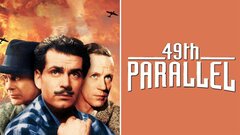
49th ParallelStream

Intermezzo
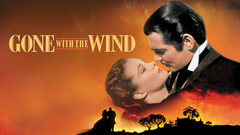
Gone With the WindStream
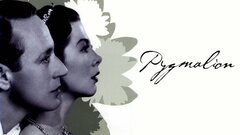
PygmalionStream

PygmalionStream

Stand-In

It's Love I'm After
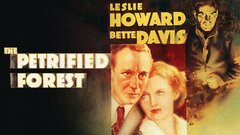
The Petrified ForestStream
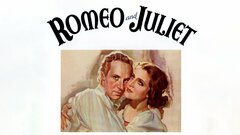
Romeo and JulietStream
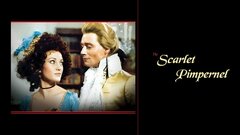
The Scarlet PimpernelStream
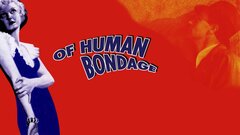
Of Human BondageStream

The Lady Is Willing

British Agent

Captured

Secrets

Berkeley Square

The Animal Kingdom

Service for Ladies

Smilin' Through

A Free Soul

Devotion

Never the Twain Shall Meet

Five and Ten
